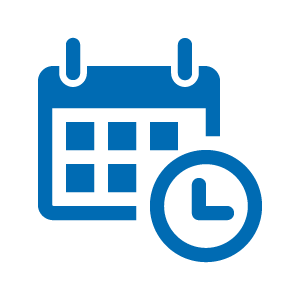Emergency contraception
Emergency contraception is a way to prevent pregnancy after your birth control method has failed or after you’ve had unprotected intercourse.
You need emergency contraception after intercourse if:
- you haven’t used a contraception method, or the condom has split or got stuck in the vagina
- you’ve forgotten to take a contraceptive pill within seven days after a pill-free week Emergency contraception is not needed if you’ve forgotten to take a pill later during the pill-taking period
- you’ve forgotten several pills. In addition to emergency contraception, a condom needs to be used as instructed above.
Emergency contraception is not effective if you’re already pregnant. Emergency contraceptive pills are available at pharmacies without a prescription and without age limit restriction. The pharmacy staff will advise you. If you’re unsure about your situation or want to discuss your decision with a professional, contact our appointment booking service.
Hormonal emergency contraception
Hormonal emergency contraceptive pills are most effective when taken within 12 hours after unprotected intercourse. There is one product that only contains progestin (1.5 mg of levonorgestrel in a single tablet). It is available at pharmacies without a prescription and without age limit restriction. The pharmacy staff will guide you and provide you with written instructions. You should take the tablet as soon as possible but at the latest within 72 hours after intercourse. The sooner it is taken after unprotected intercourse, the more effective it is. There are no health contraindications for using the product. In other words, using it if needed is not harmful.
Another option is a tablet containing ulipristal, a so-called progesterone receptor modulator. The product is available in single-tablet packs at pharmacies without a prescription and without age limit restriction. The pharmacy staff will explain how to take the tablet. It can be taken within 5 days after unprotected intercourse. It is as effective as levonorgestrel when used within 72 hours after intercourse. If 72 to 120 hours have elapsed from unprotected intercourse and an intrauterine device (IUD) cannot be installed, ulipristal may be more effective than levonorgestrel during this time interval.
Potential adverse effects of emergency contraceptive pills:
- Nausea
- Vomiting (if you vomit within 3 hours after taking the tablet, take a new one immediately)
- Dizziness, exhaustion, headache, lower abdominal pain
- Breast tightness, discharge abnormalities
Intrauterine device (IUD)
Installing a copper intrauterine device (IUD) is an effective method of emergency contraception. If it’s installed within 6 days after unprotected intercourse, pregnancy begins in no more than 1% to 2% of those treated.
One benefit of the copper IUD is that it continues to act as a contraceptive. Adverse effects include the risk of infection. To prevent infections, a course of antibiotics may be prescribed. Copper IUDs are not installed at FSHS units.
Efficacy of emergency contraception
The copper IUD is the most effective method of emergency contraception: only 0.1% get pregnant compared to 1% to 5% of those taking the emergency contraceptive tablet. A pregnancy test should be taken if the period does not start on time. The possibility of extrauterine pregnancy must also be taken into account. If menstrual bleeding is abnormally light or painful, a pregnancy test is advisable. If you have problems related to emergency contraception, contact a healthcare professional.
Remember the following:
- Emergency contraception is a single-use birth control method, not a continuous one. Remember to take care of birth control afterwards.
- The sooner the emergency contraceptive tablet is taken after unprotected intercourse, the more effective it is.
- To minimise hormonal adverse effects, emergency contraception should be used only once per menstrual cycle and no more than 3 times a year.
- You need to take care of birth control in other ways until your next period.
- Emergency contraception does not protect against sexually transmitted diseases.
- Emergency contraception is allowed during breast-feeding, but you can protect your child by first pumping milk off once after taking levonorgestrel. After taking ulipristal acetate, you should not breastfeed for 36 hours.
- Take a pregnancy test if your next period is over 5 days late or if menstrual bleeding is abnormal.
Information sources: The Finnish Medical Society Duodecim: Terveysportti, Lääkärin tietokanta database
FSHS General Practitioner / 05 July 2022

